Guest post by Carolyn
Carolyn is a teacher in central Europe. She writes, travels, eats, messages her kids, and, despite warnings, reads while walking the dog.
Recently, I decided to read the Book of Mormon with a specific mission. I knew that Nephi was born of goodly parents, that Abinadi was brave and faithful, and that Ammon was an exemplary teacher and missionary. There are so many stories of great men in the Book of Mormon. What of the women?
Just six women are named in the Book of Mormon. We can read the stories of Sariah, Nephi’s mother; Abish, faithful servant to King Lamoni’s queen; and Isabel, the harlot. The other three women are from the Bible: Eve, Sarah, and Mary. My reading mission, however, led me to focus on snapshots of unnamed women: the sisters, mothers, daughters and wives whose lives are woven almost invisibly into a thousand years of history, prophecy, and doctrine.
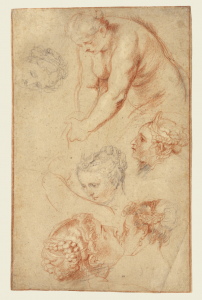
Early in the Book of Mormon, we meet Nephi’s mother, Sariah, and his mother-in-law, Ishmael’s wife. Sariah is mentioned several times, but we glimpse Ishmael’s wife in just a few verses. I had a lot of questions about her. Our snapshot shows that she left Jerusalem with her husband and family after Nephi and his brothers visited them and the Lord softened their hearts.
What? Why? How?
We know that Nephi and his brothers spoke to Ishmael. We have no record that angels were involved, or that anyone had a dream, or that anything else unusual happened. I am amazed by Ishmael’s wife’s willingness to leave Jerusalem, and a million questions come to mind. How did Ishmael tell her about this move? How did she respond? Perhaps at first she was hesitant since 1 Nephi 7 says that the Lord softened the hearts of the family. I had been impressed earlier by Sariah’s supportiveness of her husband. Lehi had visions. Ishmael did not, and yet his wife agreed and went with him.
I’d love to hear her story. What kind of relationship, love, and faith does it take to prompt someone to follow her husband into the desert? How did she decide what to pack? What did she consider when weighing the costs and benefits for her sons and daughters, not only herself? What did she tell her friends? As someone who has moved her children to a new country, I know that a mother has not only to adjust to changes herself, but she has to comfort and support children as they make the move too, dealing with unexpected challenges, and looking after others’ needs as well as her own. I moved to Hong Kong, a bustling city full of opportunity, and to a strong church ward. Ishmael’s wife left the city of Jerusalem to go into the desert without knowing where exactly, or what lay ahead. Did she load up provisions and maybe some special personal things onto a donkey? I wonder if the families were friends. I like to think that Sariah and Ishmael’s wife were or became good friends. Between them, they were either the wife, the mother, or the mother-in-law of almost everyone else in the group. They could have been very supportive of each other.
Questions for me: What would it take for me go into the unknown — not the unknown of Hong Kong, but the unknown of a vast desert? Would I give up everything for the certainty of hardship and isolation? Can a quiet spiritual witness be as powerful as a vision? How do I support women?
Her children didn’t all share her faith. On the way back to Lehi, Laman, Lemuel and four of Ishmael’s’ children and their families rebelled against Nephi, Sam, Ishmael, his wife, and their three other daughters. The rebels tied Nephi up and left him to be eaten by wild animals. After the Lord released him, his brothers came at him again. This time Ishmael’s wife, one son and one daughter pled with Nephi’s brothers ‘insomuch that they did soften their hearts’. The rebels not only stopped trying to kill Nephi, but they were sorry and asked for forgiveness. That’s quite a turnaround for these men.
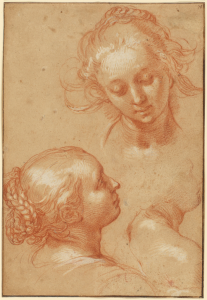
What did Ishmael’s wife and her two children say? How could they convince wild Laman and Lemuel not only to stop what they were doing, but to repent of it? I think that rather than use clever arguments, they relied on the Holy Ghost. Bullheaded Laman and Lemuel had often made trouble. I suspect that Ishmael’s wife and son and daughter were divinely guided, and that the Holy Ghost helped them to know what to say, and then He softened the brothers’ hearts. What else could cause such a change?
Questions for me: When the going gets tough, do I rely on the Holy Ghost or my own wisdom? Do I make peace? What strategies do I use to influence others? Can Heavenly Father count on me?
Just like Sariah, Ishmael’s wife watched her children fighting. How did she overcome this? We know that she ‘pled’ on Nephi’s behalf. The scriptures don’t say she screamed or made threats. She pled and caused the rebels’ hearts to be softened. Was this also how she interacted with her children?
In Chapter 26, Ishmael dies. His daughters turn on Nephi, and I guess that their mother is still alive because they don’t include her death in their list of grievances. If she was still alive at this point, how did she bear it? Far from extended family, living in the wilderness, losing the man she had followed from her home in Jerusalem into the wilderness? How did she cope with her daughters’ anger on top of her own grief?
Questions for me: When things seem insurmountable, what’s my go-to response? How could I develop my coping skills? Do I focus on myself in times of trouble, or am I able to take care of others? What kind of old person will I be? What will I look back on?
The death and much of the life of Ishmael’s wife are undocumented. One thing is certain: she was no spectator. She played an important role in the Book of Mormon, taking her family with her husband Ishmael to join Lehi and Sariah’s family. She was the ancestor of many people in the Americas. She helped saved Nephi’s life when others wanted to kill him. Just a few sentences were recorded about this in 1 Nephi 7, but the consequences were far-reaching.
Questions for me: Could I endure as Ishmael’s wife did? Do I realize that my tiny choices and acts, whether noticed or not, can have consequences that affect future generations? Can I quietly play my part in Heavenly Father’s plan? Does recognition matter?
The Book of Mormon is for ‘all nations, kindreds, tongues, and people’. While the book’s recorded events mostly feature men, we know that women are important in the story. We know that the prophecies and doctrines of the book are for everyone. In many instances, non-gendered words are used to describe the book’s people: children, seed, households, families. Although the term ‘men’ is used hundreds of times, in almost all instances, the word is intended to include women, too. When the book is referring specifically to men, such as when King Benjamin tells the men that their behavior is causing their wives to suffer, we can still ask, ‘How does this apply to me as a daughter of God? What can I learn here?’ The Book of Mormon is for women.
There are multiple ways to study women in the Book of Mormon. Consider its feminine metaphors: hens, harlots, wombs. Zion is always a ‘she’. We can study the six women who are named. We can also focus on snapshots of women who are mentioned briefly: the mothers of the stripling warriors, the women kidnapped by King Noah, the Nephite daughters sent to plead with the Lamanites, the women King Benjamin said had suffered because of their husbands, the women in the crowd when the Savior blessed their children. There are so many!
When the only concrete evidence of someone’s life is one or two sentences, we hold in our hands a single snapshot of a life. We could easily reduce these women to the one thing we know about them, as if that were the beginning and end of who they were. When we question the complexities and details of their lives, it helps us to understand not only these women, but also ourselves. We can never know for sure their reasons, their joys and disappointments, or a million other aspects of their lives. We don’t know all the facts, but the questions we ask, about them and about ourselves, can be just as instructive.


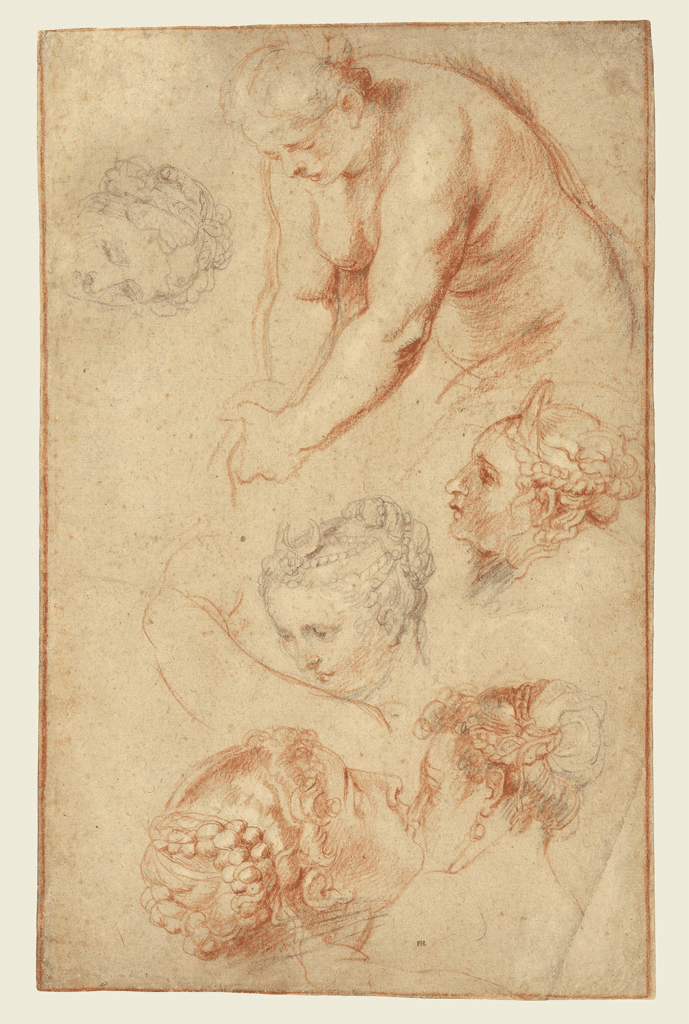
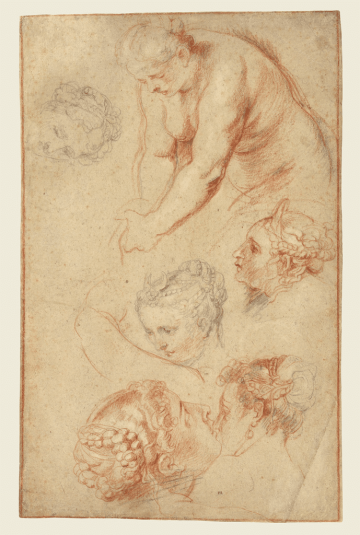

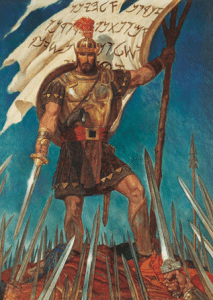
4 Responses
that was awesome, thank you ♥
I loved this post. It is tempting to skim past the stories of these women, just as the original authors did. Thank you for teaching me how to engage with them, despite the brevity of the text about them.
Thank you so much for this post, I’ve been thinking of it since I first read it. I traditionally have rolled my eyes at the feminine metaphors in the book of Mormon (I don’t know why -that’s for another day). But reading your post has inspired me to breath them in more deeply in my personal study.
Thank you again.
Thank you for this post!! It was so thoughtful and well written!! It made me stop and think about how we can look for these unseen women all around us. Thank you!